- Singal AK, et al. ACG Clinical Guideline: Alcoholic Liver Disease. Am J Gastroenterol 2018; 113: 175–194. https://www.nature.com/articles/ajg2017469.pdf
- Marcellin P and Kutala BK. Liver diseases: A major, neglected global public health problem requiring urgent actions and large-scale screening. Liver Int 2018; 38 (Suppl 1): 2–6.https://onlinelibrary.wiley.com/doi/epdf/10.1111/liv.13682
- Spence AD, et al. Communication of alcohol and smoking lifestyle advice to the gastroenterological patient. Best Pract Res Clin Gastroenterol 2017; 31: 597–604.https://www.sciencedirect.com/science/article/pii/S1521691817301087?via%3Dihub
- Campbell EJ, Lawrence AJ and Perry CJ. New steps for treating alcohol use disorder. Psychopharmacology Epub ahead of print 25 March 2018. DOI: 10.1007/s00213-018-4887-7.https://link.springer.com/article/10.1007%2Fs00213-018-4887-7
Last October, on the occasion of UEG Week 2017, we had a chance to sit and talk with Professor Helena Cortez-Pinto, a member of UEG’s Public Affairs Committee and author of the UEG Education article “Mistakes in alcoholic liver disease and how to avoid them.” Now, in the middle of Alcohol Awareness Month, we highlight the main points of our discussion and make the video of the interview available.
During our interview, Helena conveyed the importance of several aspects related to state-of-the-art treatment for patients with alcoholic liver disease (ALD), such as the necessary involvement of multidisciplinary teams to deal with both the physical and psychological sides of the disease. She also touched on the specificities of performing a liver biopsy in ALD patients, as well as some of the alcohol-related issues the UEG Public Affairs Committee is trying to get onto the EU health agenda.
The current, evident disparity between ALD research and its burden, when compared with other liver diseases, was a key point mentioned by Helena during the interview. Supporting this point is evidence from Ramon Bataller and co-authors, who developed an Attention-to-Burden Index (ABI), comparing research activities during 2010–2014 with an estimate of disease burden for the four major liver diseases, namely hepatitis B and C, ALD and nonalcoholic fatty liver disease.1 Surprisingly (or not), they found that the mean research attention for ALD was only 5%, when its overall burden was 50%, highlighting the critical need to increase awareness of ALD in the liver research community. This need was also pointed out by Helena during her interview and is something she is working to convey to Members of the European Parliament, Representatives of the European Commission and Council, as well as other EU stakeholders, as part of her work on UEG’s Public Affairs Committee, which is chaired by Markus Peck-Radosavljevic.
In a related matter, earlier this year the “Alcohol and Digestive Cancers: Time for Change” report was published by UEG EU Affairs, highlighting the alarming scale of alcohol consumption across Europe and its direct and indirect impact on digestive cancers.
More information on the work of the UEG Public Affairs Committee can be found online, along with a copy of the “Mistakes in alcoholic liver disease and how to avoid them” article from Helena and co-author Pedro Marques da Costa and other articles in the “Mistakes in…” series.
We hope you enjoy the interview! Please be sure to let us know what you think, if there are any other issues we should be considering and if there’s anyone else you would like to see us interview in future.
References
- Ndugga N, et al. Disparities between research attention and burden in liver diseases: implications on uneven advances in pharmacological therapies in Europe and the USA. BMJ Open 2017; 7: e013620. http://bmjopen.bmj.com/content/bmjopen/7/3/e013620.full.pdf
-
Further reading
-
About the Author
Dr Rui Castro is currently a Principal Investigator at the Research Institute for Medicines (iMed.ULisboa), Portugal. He completed his PhD at the University of Lisbon and the Department of Medicine (GI Division), University of Minnesota Medical School, USA, in 2006. Since then, Dr Castro has been combining his background on the modulation of liver cell function with his most recent discoveries in the miRNA field, to answer key questions on liver physiology and pathophysiology, while supervising both undergraduate and postgraduate students under the GI umbrella. In 2015, he was selected as a UEG Rising Star. Follow Rui on Twitter @RuiCastroHD.
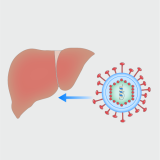
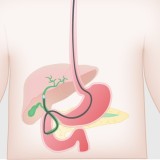


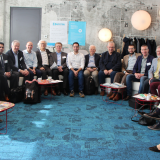
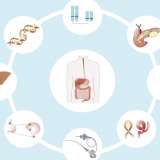
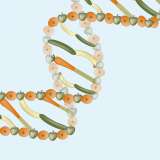
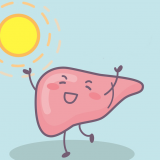
Please log in with your myUEG account to post comments.